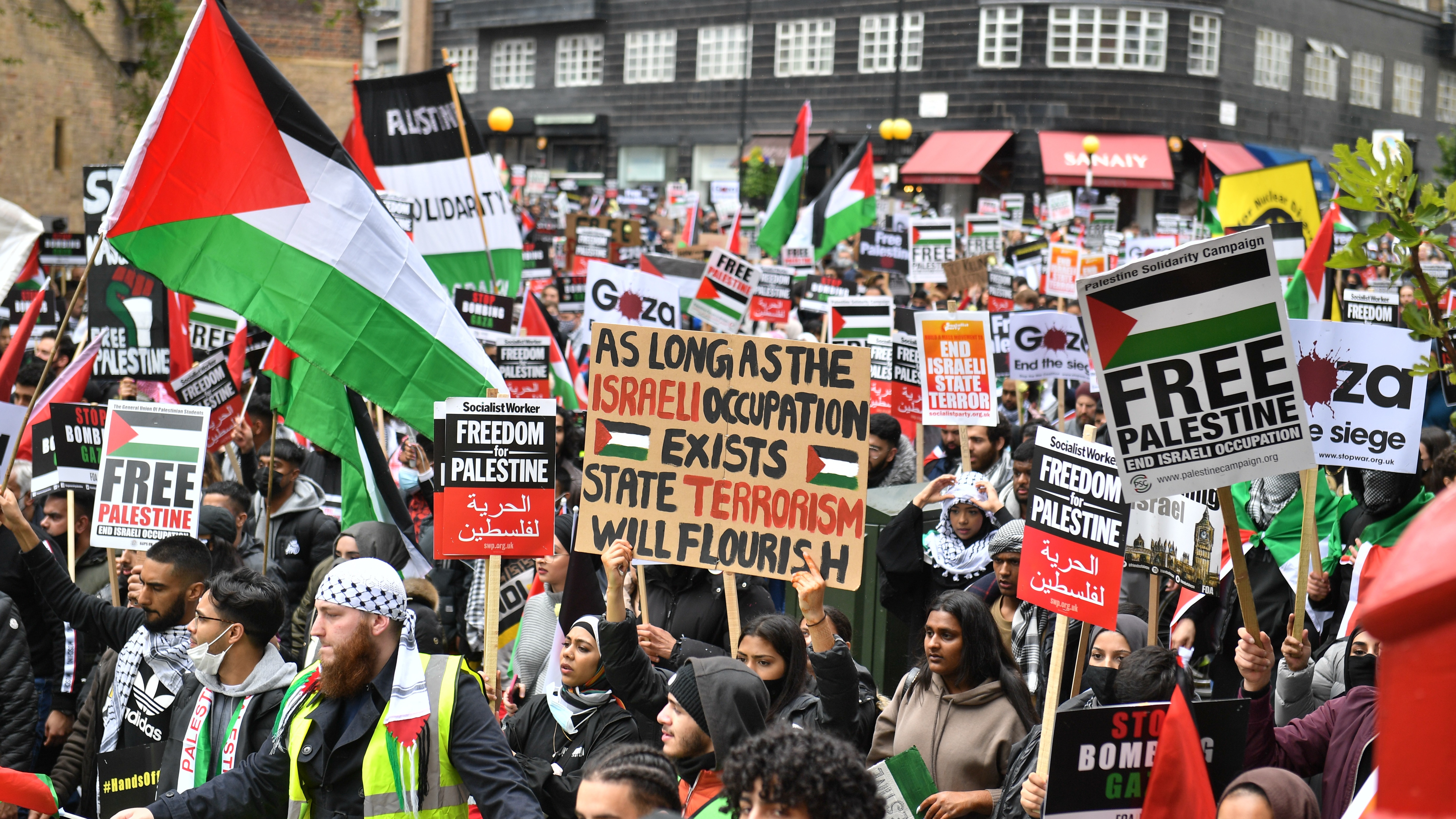The Palestine March London has become one of the most powerful symbols of solidarity in the United Kingdom, uniting people from diverse backgrounds in a call for justice and peace. On the streets of central London, tens of thousands gathered under the waving Palestine flag, demanding an end to the suffering in Gaza and freedom for Palestine. The demonstration was filled with chants of “Free Palestine”, creating a sea of red, green, black, and white that stretched from Victoria Embankment to Whitehall.
This year’s Palestine march London was not just another protest—it was a message of humanity, compassion, and resilience. Organised by groups such as the Palestine Solidarity Campaign and Palestine Action, the event represented a growing awareness in British society about the ongoing humanitarian crisis in Gaza. With banners, songs, and prayers, participants called on world leaders to take meaningful action against the violence that continues to devastate Palestinian lives.
Understanding the Israel and Palestine Conflict
To appreciate the depth of emotion seen at the Palestine march London, it is vital to understand the roots of the Israel–Palestine conflict. The dispute is one of the world’s longest-standing struggles, involving questions of land, sovereignty, and identity. Since the mid-20th century, waves of displacement, occupation, and conflict have shaped the daily lives of millions of Palestinians. The march in London is, in many ways, a response to decades of silence and suffering.
For many Britons, understanding the history behind the Israel vs Palestine issue brings new awareness of Britain’s own role in shaping the region’s history. Questions such as “Is Palestine a country?” or “Who owned the land first – Israel or Palestine?” often arise. These debates highlight the need for education, dialogue, and empathy. The Palestine march London provides a public space for those conversations to begin, peacefully and powerfully.
The London March for Palestine
The Palestine march London began at Victoria Embankment, a site known for its political rallies and historical significance. As the crowd moved through Westminster, chants of “Stop Bombing Gaza” and “End the Occupation” echoed through the city’s heart. Families, students, faith leaders, and trade unions stood side by side, waving the Palestine flag and holding banners calling for peace and justice.
The demonstration showcased the diversity and unity of those who support the Palestinian cause. From Muslim youth to Christian clergy and Jewish peace activists, people from all backgrounds came together to show that the call for justice transcends religion and nationality. The Palestine march London was peaceful yet powerful—a living reminder that the demand for freedom is a universal human right.
Voices from the Crowd

Every Palestine march London brings with it thousands of personal stories. For many participants, the event is deeply emotional, connecting them to loved ones in Gaza or to a global movement for equality. Protesters described the march as both heartbreaking and inspiring. Some carried photos of lost relatives, while others brought messages of hope, determined to remind the world that Palestinians deserve to live in safety and dignity.
Football culture also found its place in the march. Supporters wearing the Palestine football shirt and Celtic Palestine banners reminded onlookers that sport, too, can be a vehicle for justice. Their chants and songs turned the streets of London into a stadium of solidarity. The Palestine march London has evolved into more than a protest—it is a cultural expression of resistance and humanity.
The Political and Social Impact in the UK
The political implications of the Palestine march London are significant. These mass gatherings have influenced parliamentary debates, challenged government policies, and encouraged discussions about Britain’s relationship with Israel. Many protesters called on the UK to suspend arms deals and recognise the state of Palestine officially. Their demands highlight a growing shift in public opinion towards human rights and international accountability.
Social media has further magnified the reach of the Palestine march London. Hashtags like #FreePalestine and #PalestineMarchLondon have trended across platforms, helping the movement gain international attention. Videos and live streams allow global audiences to witness the scale of the protest and understand its purpose. This digital activism ensures that the message of peace and justice cannot be ignored.
Global Solidarity and the Future of the Movement
The Palestine march London is part of a worldwide wave of solidarity. Similar demonstrations have taken place in cities such as Paris, New York, and Johannesburg. Each event strengthens the international call to end the occupation and stop the violence in Gaza. The global echo of London’s march proves that the Palestinian struggle is no longer confined to one region—it is a shared fight for human rights and dignity.
Spiritual and emotional connections are also evident during the march. Many participants recite dua for Palestine, praying for peace, safety, and strength for those enduring the conflict. Faith and activism come together to form a deep sense of moral duty. The Palestine march London has therefore become both a humanitarian act and a spiritual movement, rooted in empathy and the pursuit of justice.
Media Coverage and Public Awareness
Coverage of the Palestine march London by major outlets such as the BBC, The Guardian, and Al Jazeera has been extensive, though opinions differ across networks. The consistent visibility of the march in mainstream media keeps the plight of Palestinians in the public eye. Through interviews and photojournalism, the world can witness the human side of this ongoing conflict.
Public awareness in the UK continues to grow, with more people recognising the importance of fair reporting and education on the Israel–Palestine conflict. Schools, universities, and community groups are increasingly discussing topics such as where Palestine is located, the history of the Palestine map, and the role of Britain in the region. The Palestine march London has played a major part in raising that consciousness.
Conclusion
The Palestine march London is more than a protest—it is a movement that unites voices across the UK and beyond. It symbolises hope, solidarity, and the universal desire for peace. Through peaceful demonstration, it reminds the world that silence is complicity and that justice must be demanded, not awaited. Each banner, flag, and chant carries the weight of generations seeking freedom.
As the Palestine march London continues each year, its impact deepens. It encourages reflection, dialogue, and action among those who believe in human rights and equality. In the heart of one of the world’s most influential cities, people continue to march not just for Palestine, but for humanity itself.
You may also read: March Birthstone: Aquamarine and Bloodstone Meaning, Colour & Care
